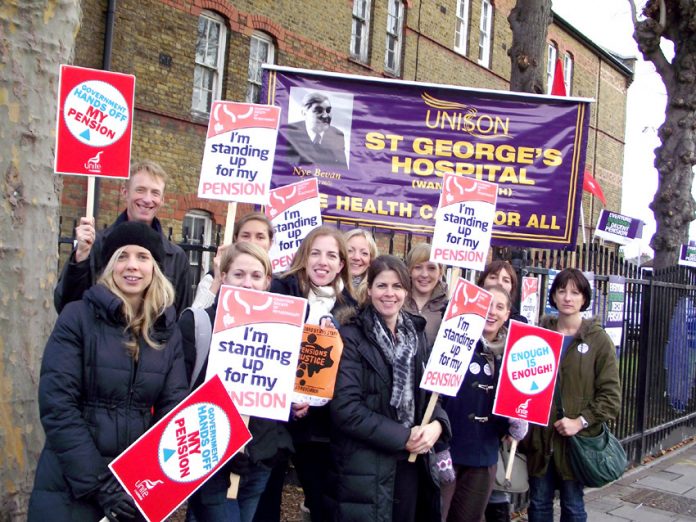
The British Medical Association (BMA) has requested an urgent meeting with the Chief Secretary to the Treasury in a further effort to re-start talks with the government on changes to the NHS pension scheme.
The BMA’s Council is meeting on Saturday, February 25, to consider the options for balloting on industrial action, should there not be a significant change in the government’s position.
Dr Hamish Meldrum, Chairman of Council at the BMA, said: ‘Since the seventies, no dispute between the medical profession and the government has reached the point where a ballot on industrial action was necessary. The fact that doctors are seriously considering it now shows how unfair these proposals are.’
46,000 doctors and medical students responded to a survey last month, with 84% rejecting the government’s current plans which include raising the normal pension age for NHS staff.
Nearly two thirds said they would be prepared to take industrial action if the government does not improve its offer.
In a letter to Chief Secretary to the Treasury Danny Alexander, the BMA points out that the NHS pension was radically overhauled less than four years ago.
The BMA letter says: ‘It is in good financial health, and currently provides £2billion to the Treasury every year. In addition, the cost-sharing agreement reached at the time ensured that any increase in contributions needed in the future would be met by employees, not the taxpayer.’
The letter highlights the Public Accounts Committee’s warning that the government’s proposals ‘could destabilise the largest public sector pension scheme, increasing the burden on the state, and creating problems with retention of senior staff’.
The BMA has also published a new briefing paper setting out the facts about NHS pensions.
The government’s new proposals would mean a junior doctor currently at the start of their career now working to the age of 68 and paying over £200,000 in additional lifetime contributions.